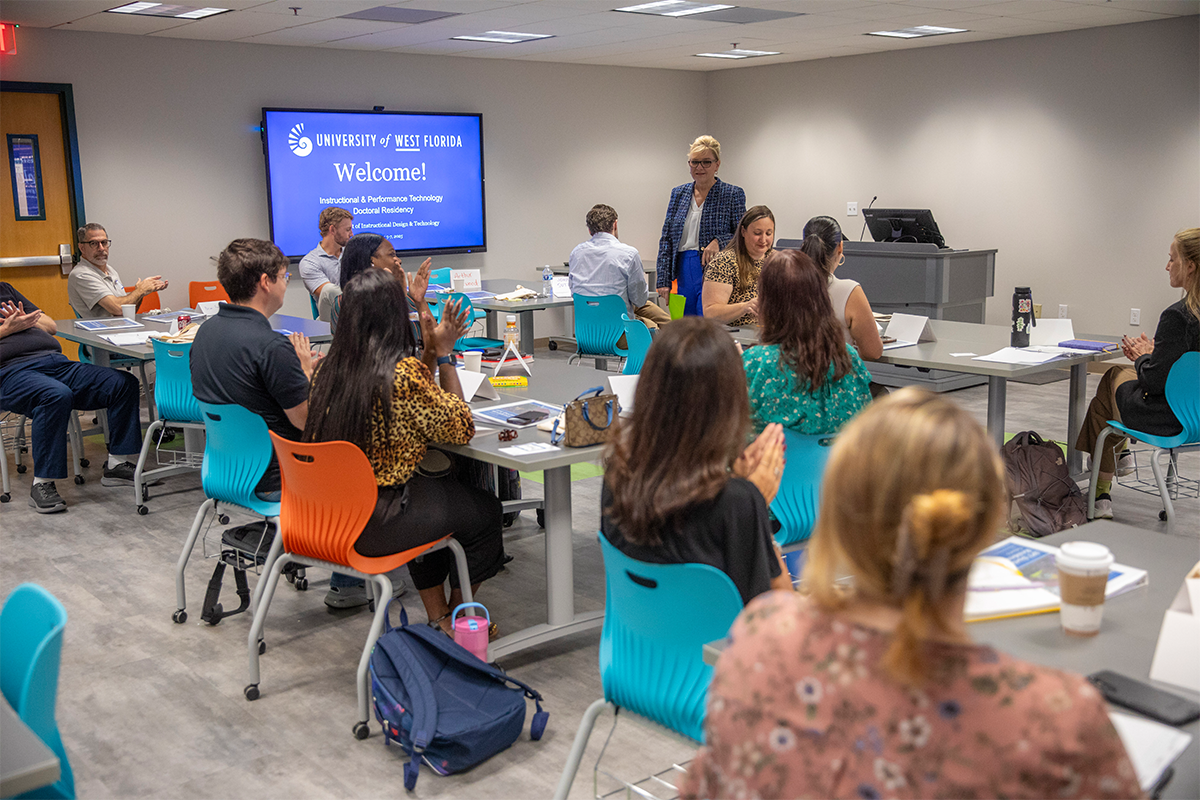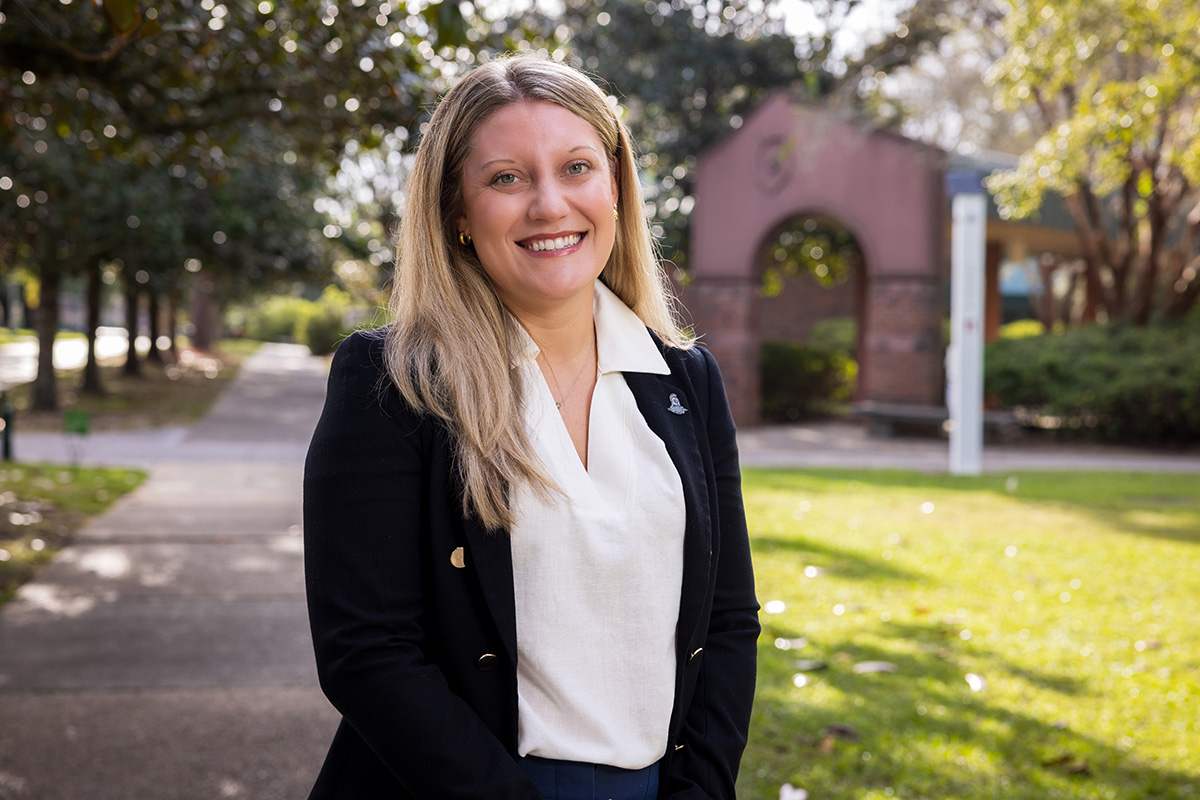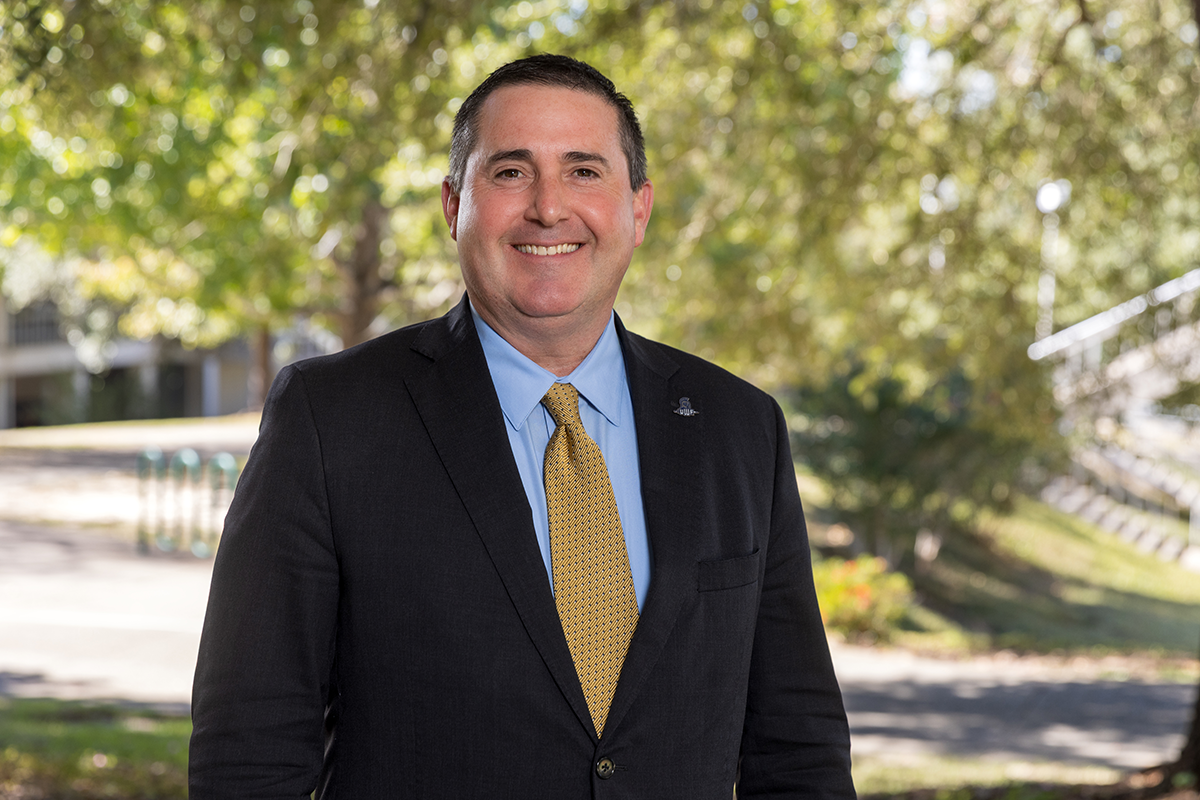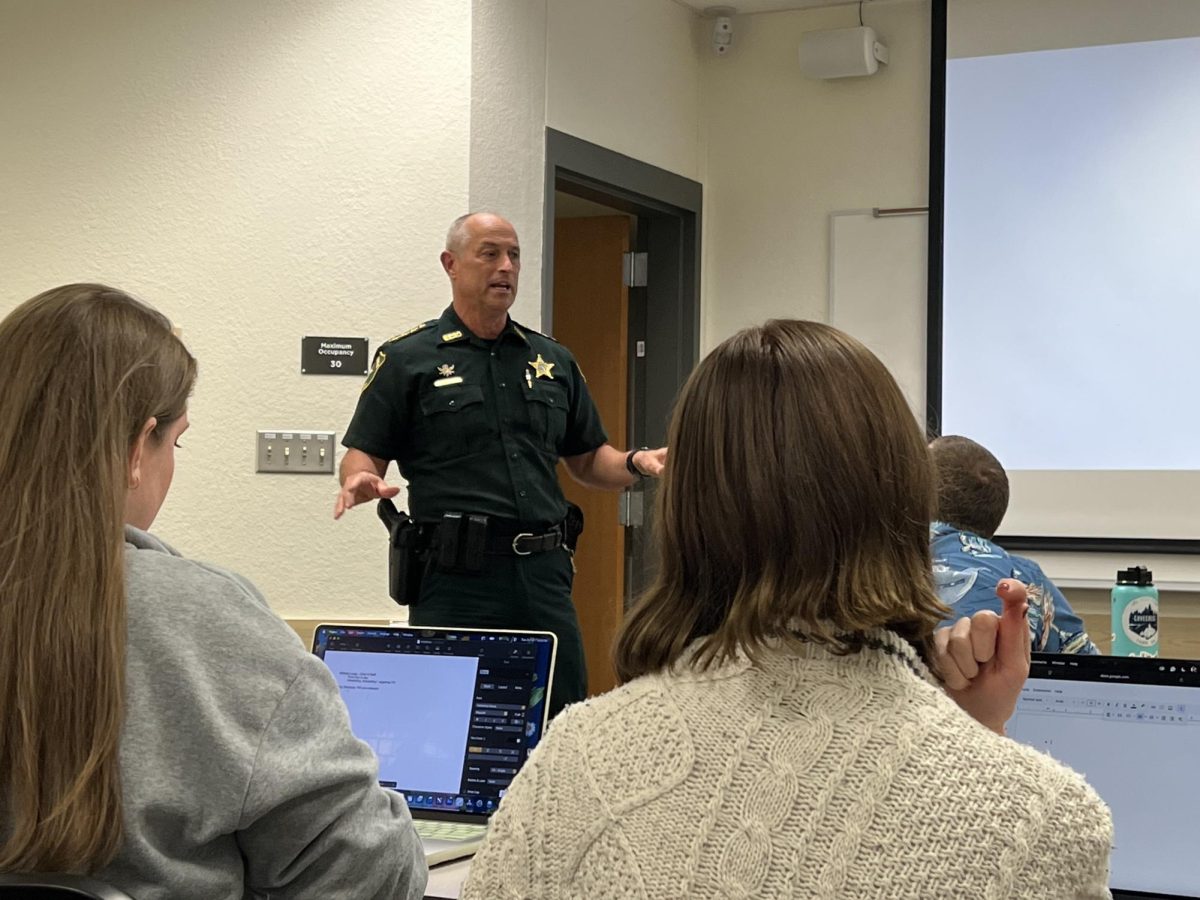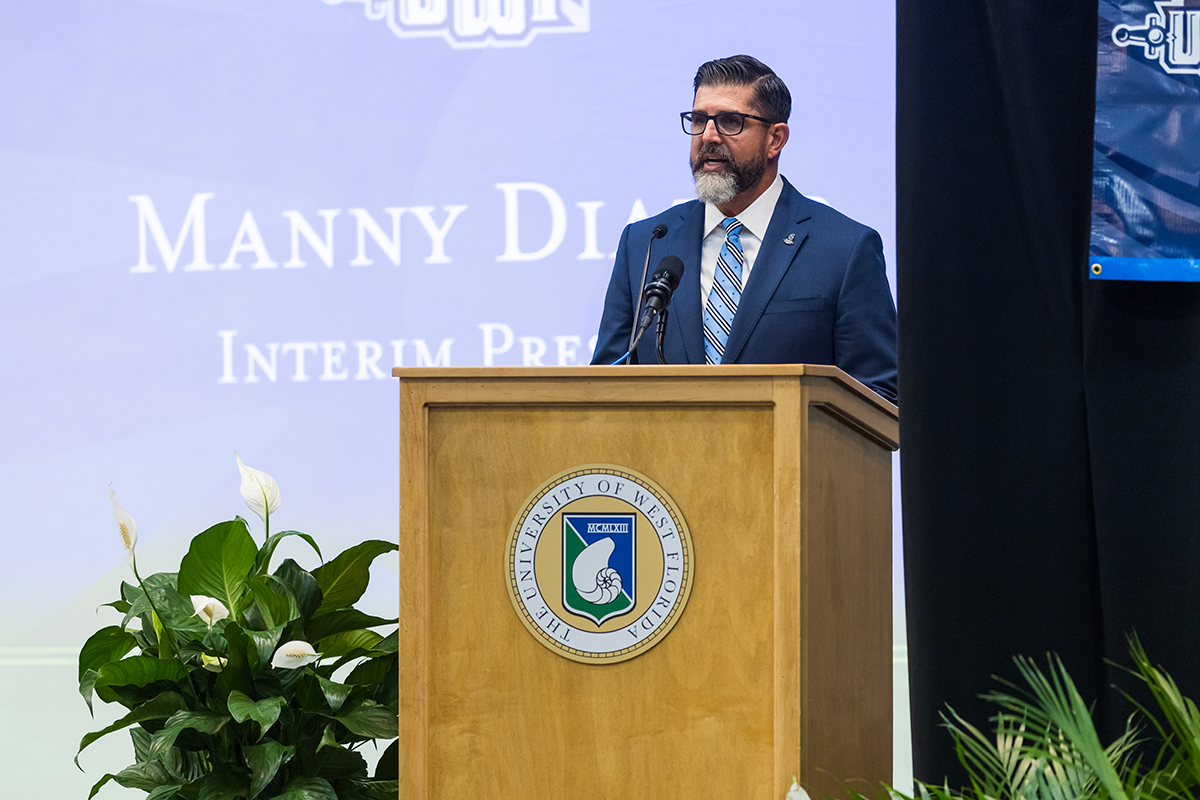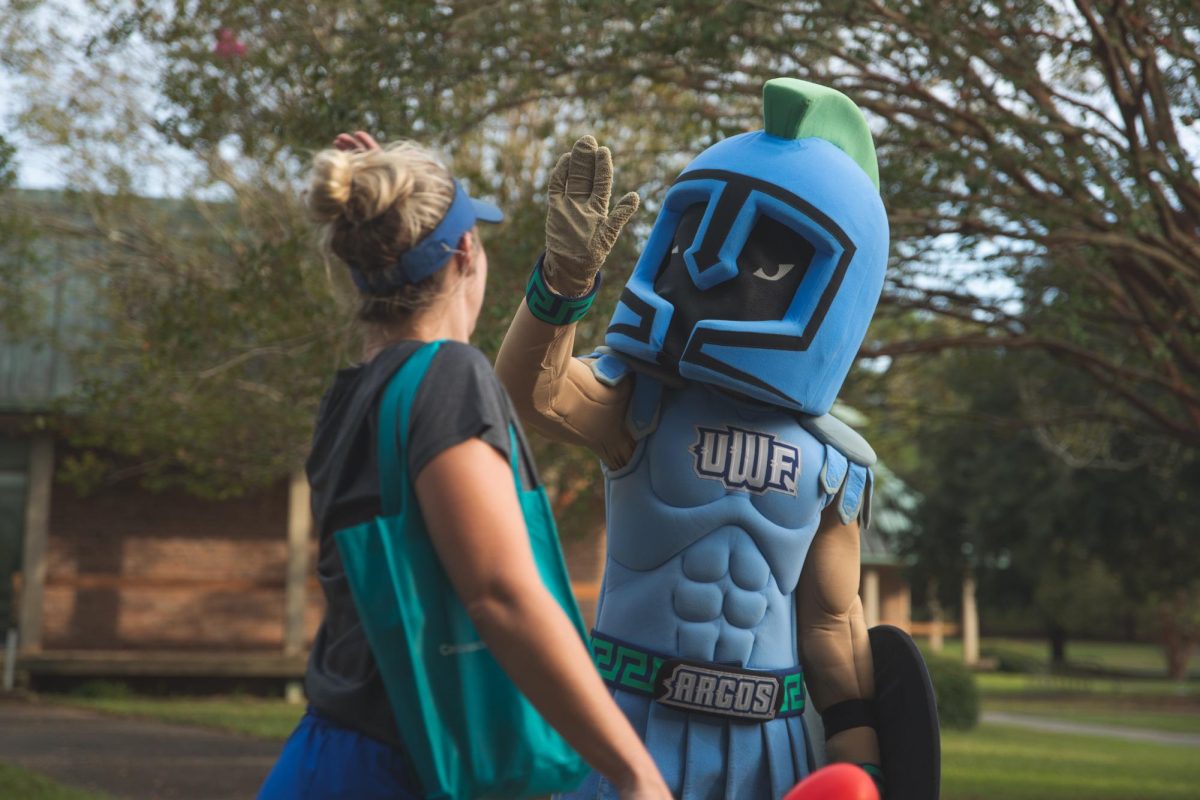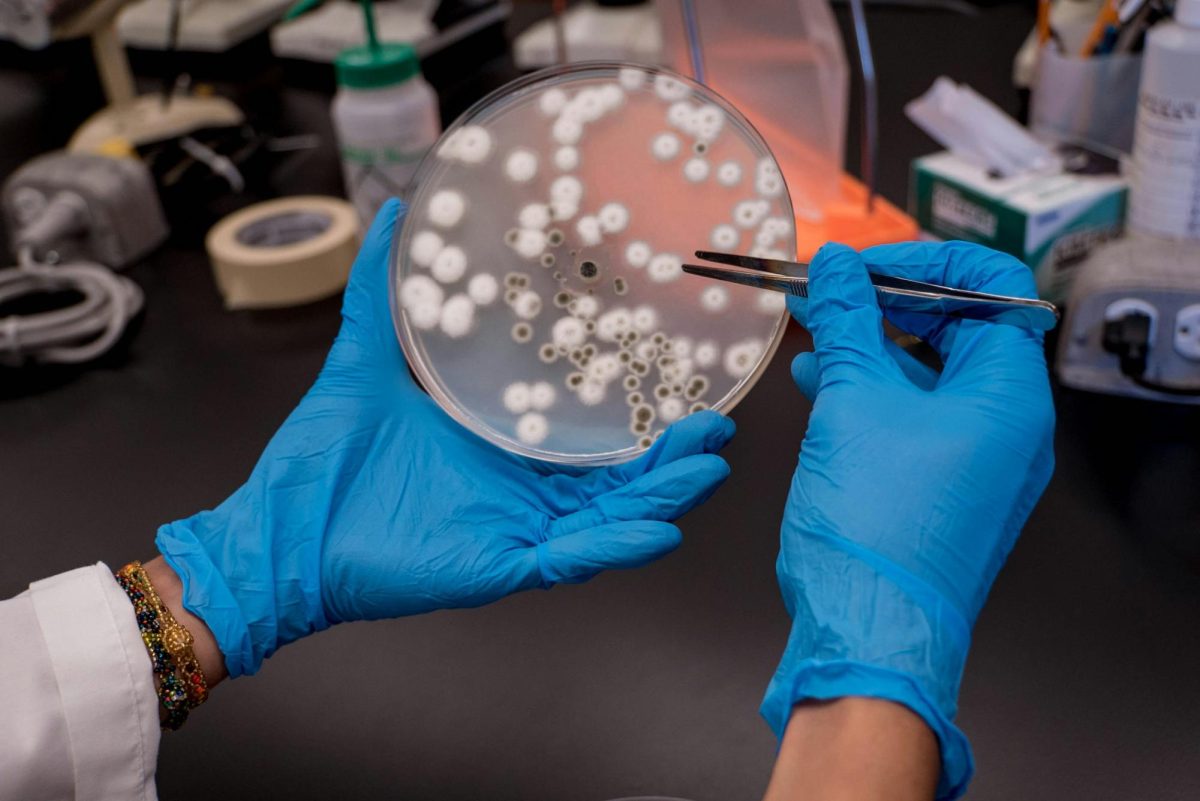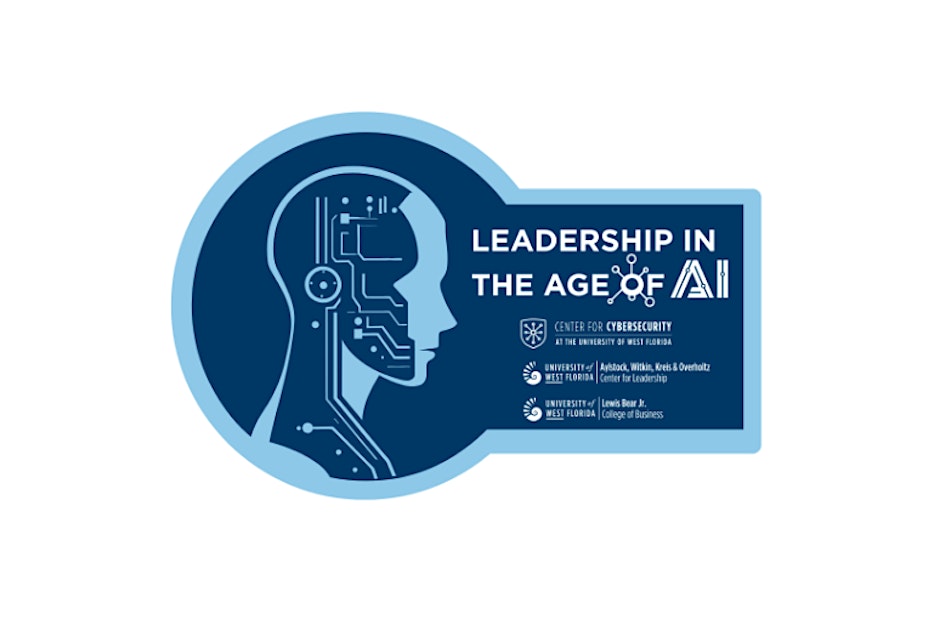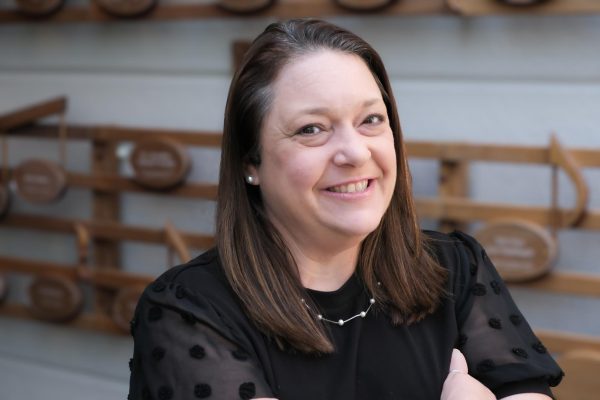PENSACOLA, Fla. (Oct. 28, 2025) – The University of West Florida’s School of Education recently hosted its annual Instructional and Performance Technology Doctoral Residency, bringing together students, alumni, faculty, and staff for a weekend of collaboration, applied learning, and professional development.
Held on UWF’s Pensacola campus, this signature event is the only doctoral residency hosted at UWF. It serves as a cornerstone experience of the School of Education’s practitioner-focused Instructional and Performance Technology Doctor of Education (Ed.D.) program.
Launched in 2020, the IPT Ed.D. program prepares scholar-practitioners to lead performance improvement and organizational change across various sectors, including education, business, government, and military organizations. This year’s residency marked a milestone as UWF welcomed its sixth incoming cohort of doctoral students, bringing together new and returning cohorts for an immersive weekend centered on leadership development, systems thinking, and collaboration. Designed to bridge coursework and professional practice, the residency allows students to advance their Dissertation in Practice projects while building meaningful connections across cohorts and disciplines.
Throughout the weekend, students engaged in interactive workshops, project presentation sessions, and alumni-led discussions that emphasized real-world application and performance improvement. Featured speakers included Dr. Denise Soares, dean of the School of Education; Mary Ann Scott, assistant director of the Doctoral Support Center; and several IPT alumni. Dr. Robin Brandenburg, global instructional design manager at Applied Materials, shared insights on organizational change and the human side of performance improvement, drawing on her expertise as a Prosci Certified Advanced Instructor.
Students described the experience as empowering and transformative. “I left the residency feeling empowered and supported, and I have a team of successful colleagues to support me on my professional journey,” said student Iesha Adams Powell.
Another student, Jenn Butler, reflected on the experience. “At times, the thought of identifying and conducting action research on a problem of practice and then writing a dissertation feels overwhelming,” Butler said. “However, the residency format and the program’s structuring make these tasks seem manageable. The residency took the scary out of the equation for me.”
Dr. Holley Handley, interim chair of the Department of Instructional Design and Technology, reflected on the event’s impact. “The residency embodies what makes our program distinct,” Handley said. “It’s collaborative, applied, and rooted in the systems thinking that defines the field of instructional and performance technology. Our students bring their organizational challenges to the table and leave with practical strategies and a renewed sense of purpose as scholar-practitioners.”
The IPT Doctoral Residency continues to serve as an annual signature experience that connects theory to practice, reinforcing UWF’s commitment to developing leaders who drive meaningful, evidence-based change across various organizational and professional environments.
For more information about Instructional and Performance Technology at UWF, visit uwf.edu/ipt.

